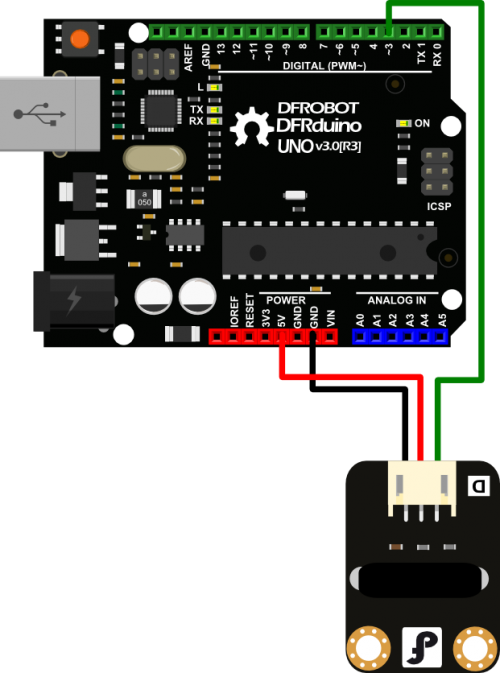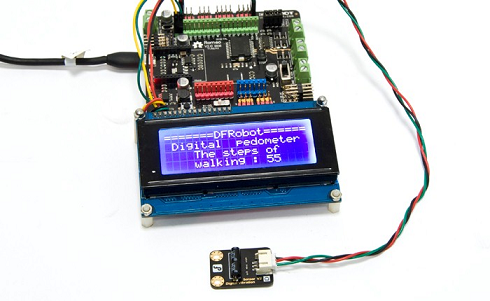
아두이노에서 진동을 간편하게 측정할 수 있습니다. 디지털 출력을 지원하며 걸음걸이 측정, 충격 감지등에 사용이 가능합니다.
특징 동작 전압 : 3.3 ~ 5V 5mm 간격의 3mm 마운팅 홀 1000만번 측정 가능 크기 : 22 x 30 mm
관련 문서

아두이노 소스코드 #define SensorLED 13
#define SensorINPUT 3 //Connect the sensor to digital Pin 3 which is Interrupts 1.
unsigned char state = 0;
void setup()
{
pinMode(SensorLED, OUTPUT);
pinMode(SensorINPUT, INPUT);
attachInterrupt(1, blink, FALLING);
}
void loop()
{
if(state!=0)
{
state = 0;
digitalWrite(SensorLED,HIGH);
delay(500);
}
else
digitalWrite(SensorLED,LOW);
}
void blink()
{
state++;
}
INTRODUCTION
What's the simplest way to check vibration with Arduino? Use a vibration
sensor from DFRobot. You can directly plug it on our IO Expesion Shield V7.
Just vibrate this sensor, Arduino can receive a digital signal. It's easy to
acount and program in Arduino.
Despite it's simple, you can make full use of it with creative thinking,
like step counting, Crash warning light and so on.
Inprovement
·
Wide voltage range
from 3.3V to 5V
·
Standard
assembling structure (Times-of-5mm Center distance between two 3mm mounting
holes)
·
Easily recognitive
interfaces of sensors ("A" for analog and "D" for digital)
·
Icons to simplely
illustrate sensor function
·
High quality
connector
·
Immersion gold
surface

a simple Pedometer device that can count your step
SPECIFICATION
·
IO Type: Digital
·
Switch life: up to
10 million seconds
·
Open circuit
resistance: 10Mohm
·
Supply Voltage:
3.3V to 5V
·
Interface: Digital
·
Size:22x30mm
DOCUMENTS
·
Wiki Page
·
Schematic
SHIPPING
LIST
·
Sensor x1
·
Digital Sensor
Cable (SKU:FIT0011) x1
|